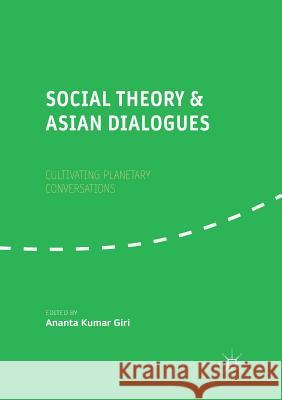Social Theory and Asian Dialogues: Cultivating Planetary Conversations » książka
topmenu
Social Theory and Asian Dialogues: Cultivating Planetary Conversations
ISBN-13: 9789811339141 / Angielski / Miękka / 2018 / 472 str.
Kategorie:
Kategorie BISAC:
Wydawca:
Palgrave MacMillan
Język:
Angielski
ISBN-13:
9789811339141
Rok wydania:
2018
Wydanie:
Softcover Repri
Ilość stron:
472
Waga:
0.65 kg
Wymiary:
21.01 x 14.81 x 2.84
Oprawa:
Miękka
Wolumenów:
01
Dodatkowe informacje:
Wydanie ilustrowane











